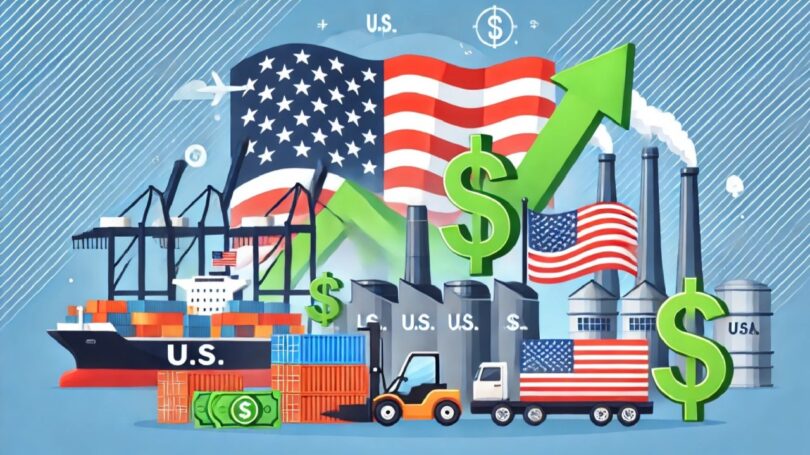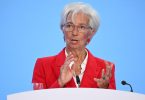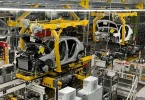The U.S. is poised to impose steep tariffs on Canada, Mexico, and other trading partners next week, raising fears among economists that these measures could fuel inflation and slow economic growth, potentially leading to stagflation.
President Donald Trump confirmed on Thursday that 25% tariffs on Canada and Mexico, which had been temporarily delayed for negotiations, will proceed as planned on March 4. Additionally, a 10% tariff on Chinese imports will be implemented next week, adding to existing levies. By March 12, steel and aluminum imports will face 25% tariffs, while automobile imports could be hit with similar duties as early as April. Trump has also threatened to impose 25% tariffs on European Union imports.
Experts warn that the unpredictable manner in which these tariffs are being introduced could negatively impact consumer and business confidence. Marcus Noland of the Peterson Institute for International Economics noted that while tariffs alone may not cause a recession, the uncertainty surrounding them could significantly reduce investment.
“If pushed to the extreme, these tariffs could even trigger a recession,” said Gregory Daco, chief economist at EY-Parthenon. Businesses are likely to pass increased costs onto consumers, driving up prices and reducing spending. A recent EY-Parthenon survey found that 50% of business executives plan to pass two-thirds or more of their increased costs from tariffs to consumers.
Consumer confidence took a sharp hit in February, experiencing its steepest decline in over four years, according to the Conference Board. Additionally, U.S. consumer spending fell in January for the first time in nearly two years, raising concerns about the broader economic impact of Trump’s trade policies.
Further economic pressure could come from the administration’s push to shrink the federal workforce, potentially affecting local economies as government workers cut back on spending.
“Federal workers support jobs in the local economy by spending on Uber drivers, at restaurants, and sporting events,” said Ryan Sweet, chief U.S. economist at Oxford Economics. “Cutting their jobs will have negative effects elsewhere in the economy.”
With uncertainty mounting and fears of a trade war growing, analysts warn that the coming months could test the resilience of the U.S. economy.
Source: CBS News







